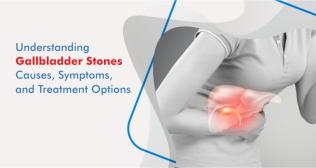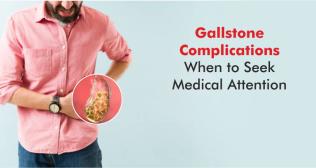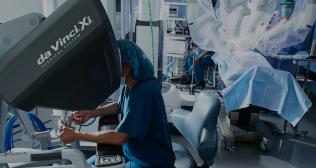
Understanding Rectal Bleeding: Causes, Diagnosis, and Treatment by Dr. Shabeer Ahmed
Rectal bleeding is a concerning symptom that can have a wide range of causes. While the sight of blood in your stool or on toilet paper may be alarming, it's important to understand that rectal bleeding can result from both minor and more serious conditions. Dr. Shabeer Ahmed, an expert in gastrointestinal, minimal access, and bariatric surgery at Fortis Hospital, Bannerghatta Road, provides insights into both acute (sudden) and chronic (long-term) causes of rectal bleeding, as well as how it is diagnosed and treated.
What Causes Acute Rectal Bleeding?
Acute rectal bleeding refers to sudden episodes that may require immediate medical attention. Common causes include:
- Hemorrhoids: Swollen blood vessels in the rectum or anus can rupture, causing bright red bleeding. Often associated with pain or itching, hemorrhoids are one of the most common causes of rectal bleeding.
- Anal Fissures: Small tears in the lining of the anus, often caused by passing hard stools, lead to painful bleeding.
- Diverticular Disease: Small pouches (diverticula) in the colon wall can become inflamed or bleed, leading to significant rectal bleeding.
- Infectious Colitis: Infections caused by bacteria, viruses, or parasites can lead to inflammation in the colon, resulting in diarrhea and rectal bleeding.
- Ischemic Colitis: Reduced blood flow to the colon can cause pain, cramping, and bloody diarrhea.
- Trauma: Injuries to the rectal area, either from surgery, accidents, or foreign objects, can result in bleeding.
- Gastrointestinal Malformations (AVMs): Arteriovenous malformations in the gastrointestinal tract can cause sudden, significant bleeding.
- Colorectal Polyps: These growths in the colon may bleed, especially if they become large or are damaged.
What Causes Chronic Rectal Bleeding?
Chronic rectal bleeding refers to ongoing or recurrent episodes that may indicate more serious underlying conditions. Common causes include:
- Colorectal Cancer: Persistent or intermittent rectal bleeding, particularly in individuals over 50, can be a sign of colon or rectal cancer. This is especially important in those with a family history of colorectal cancer.
- Inflammatory Bowel Disease (IBD): Chronic inflammation from conditions like Crohn’s disease and ulcerative colitis can cause ulcers in the colon, leading to long-term bleeding.
- Angiodysplasia: Abnormal blood vessels in the colon can cause slow, intermittent bleeding, which is often seen in older adults.
- Chronic Hemorrhoids: Long-standing hemorrhoids can result in bleeding, especially during bowel movements.
- Radiation Proctitis: Chronic inflammation of the rectum following radiation therapy for pelvic cancers, such as prostate or cervical cancer, can lead to rectal bleeding.
- Diverticulosis: Though typically symptom-free, diverticulosis can cause chronic bleeding when the diverticula become inflamed or infected.
- Rectal Ulcers: These can develop due to chronic constipation, straining, or other medical conditions like rectal prolapse.
- Vascular Ectasia: Abnormal blood vessels in the gastrointestinal tract can cause slow, chronic bleeding, especially in older adults.
How is Rectal Bleeding Diagnosed and Treated?
Diagnosing the cause of rectal bleeding requires a thorough medical evaluation. Dr. Shabeer Ahmed emphasizes that understanding the severity and accompanying symptoms is crucial for determining the underlying issue. The following diagnostic tests may be used:
- Colonoscopy: A procedure to examine the colon and rectum using a flexible tube with a camera, allowing for direct visualization of the area.
- Imaging: Scans such as CT scans may be used to detect abnormalities in the gastrointestinal tract.
- Blood Tests: These can help assess for infections, inflammation, or anemia caused by chronic bleeding.
Treatment Options
Treatment for rectal bleeding depends on the cause:
Hemorrhoids and anal fissures can often be treated with lifestyle changes, over-the-counter creams, or minor procedures.
Infectious colitis is treated with antibiotics or antiviral medications.
Diverticular disease and colorectal polyps may require surgical intervention if the bleeding is severe.
Colorectal cancer and inflammatory bowel disease (IBD) often involve more complex treatment plans, including surgery, medication, and ongoing management.
Conclusion: Don’t Ignore Rectal Bleeding
While rectal bleeding can result from relatively benign conditions like hemorrhoids or anal fissures, it can also indicate more serious problems, such as colorectal cancer or inflammatory bowel disease. Seeking medical attention from specialists like Dr. Shabeer Ahmed at Fortis Hospital, Bannerghatta Road, can help ensure that the underlying cause is diagnosed and treated effectively.
If you're experiencing rectal bleeding, don't delay in seeking help—early diagnosis and treatment can make a significant difference in outcomes.
Contact Fortis Hospital, Bannerghatta Road, to schedule a consultation with Dr. Shabeer Ahmed for an expert evaluation of gastrointestinal issues, including rectal bleeding.



















